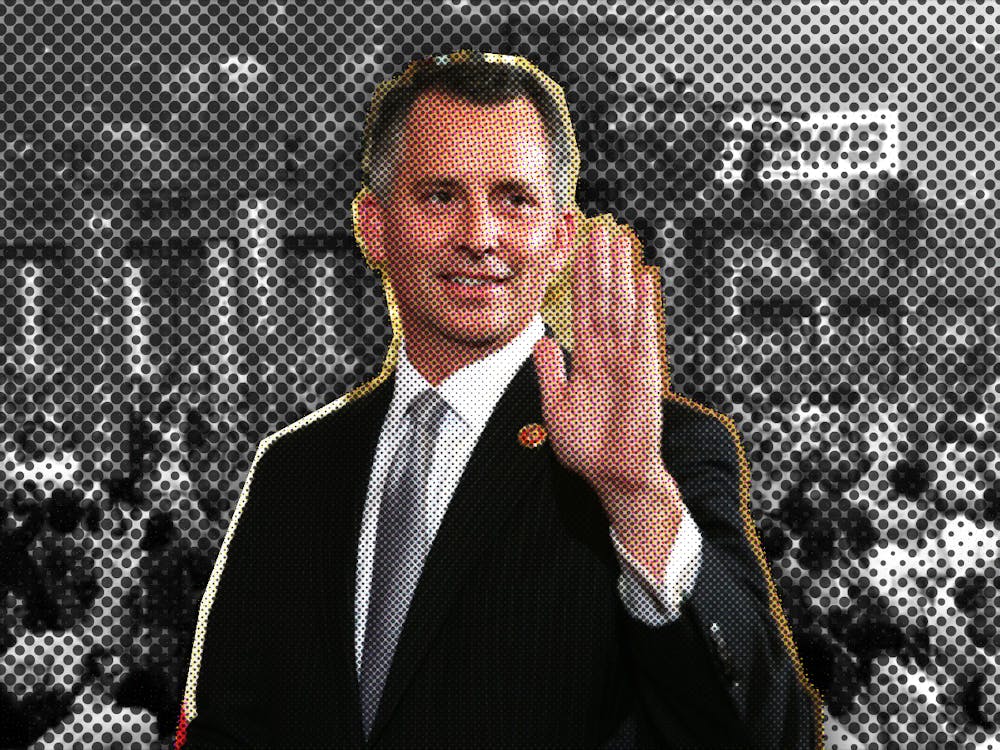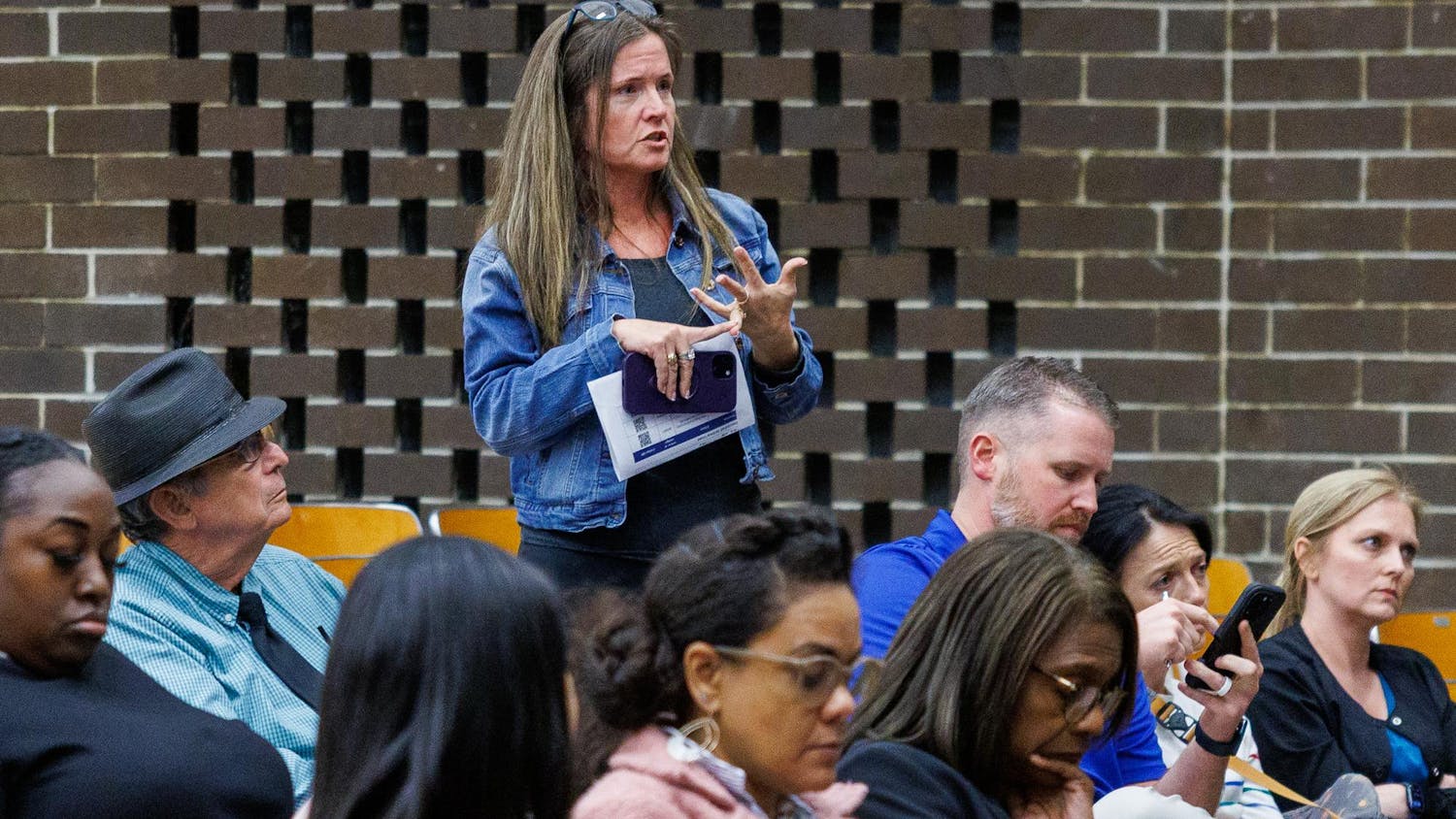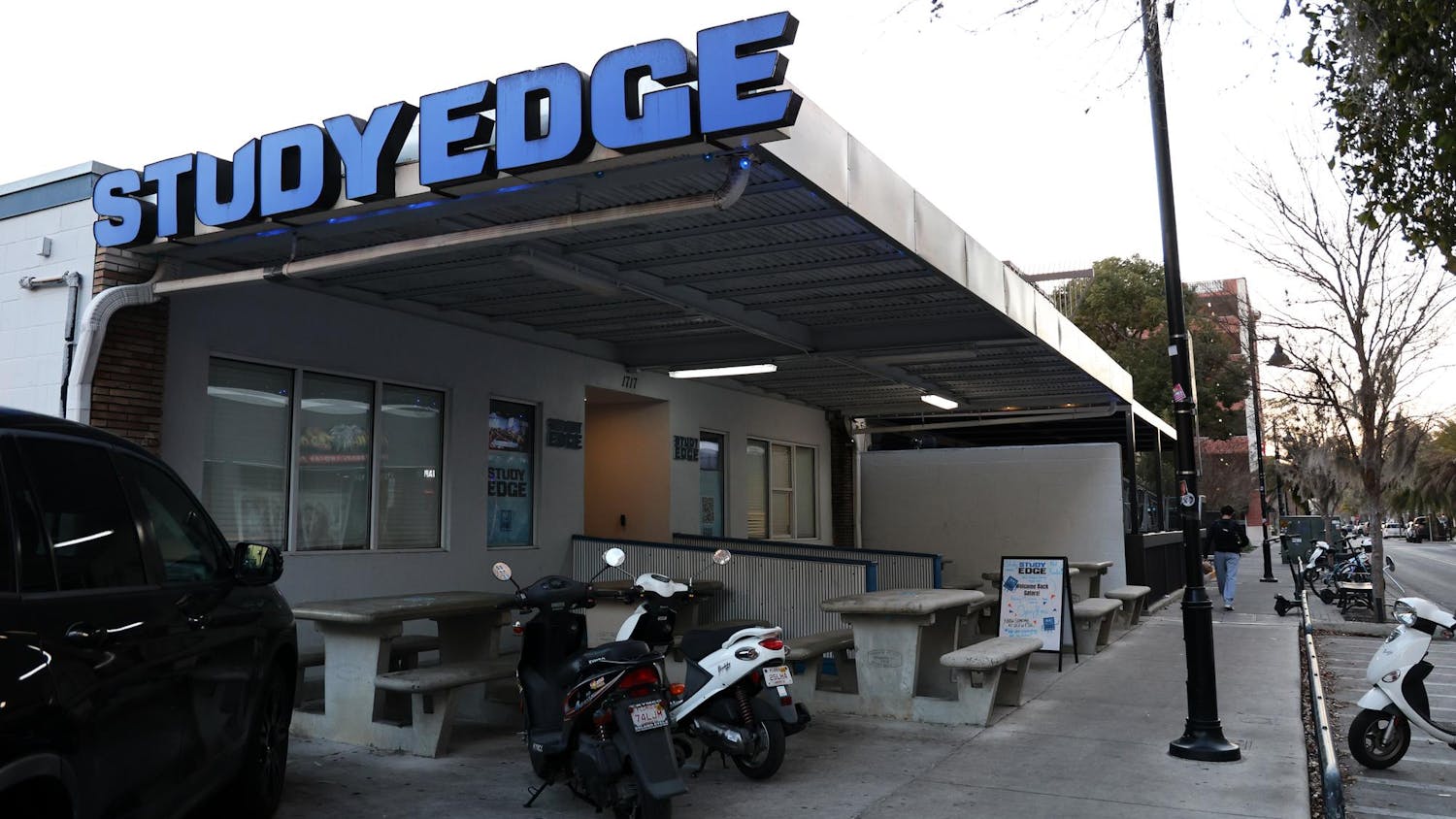Former U.S. Rep. David Jolly has previously pledged allegiance to three different political parties. He entered Florida’s 2026 gubernatorial race in June as a Democrat to mixed reactions of celebration and chagrin.
Jolly started his political career in 2014 as a Republican, spending four years as a GOP congressman and six years as a registered Independent. Five months ago, Jolly joined the Democratic party as its frontrunner candidate for Florida governor.
The 52-year-old attorney and Florida native spent 10 years of his childhood in Miami as a Southern Baptist minister’s son. He has two children with his wife, Laura. For the past eight years, he’s worked as a political commentator for MSNBC.
Jolly sat down with The Alligator for a one-on-one interview about visions for the state during his quick trip to Gainesville on Sept. 12, where he also met with student members of UF College Democrats. Covering a range of topics, the candidate focused on the moves he'd make as governor.
This interview has been edited for length and clarity.
Q. Why are you running?
A. We have an affordability crisis in the state of Florida that's hitting everybody from every walk of life. The affordability crisis is real. Gov. Ron DeSantis has declared culture wars, has further marginalized communities, has punched down and divided too many Floridians. [In] some areas, it's a direct attack on democracy. I think the permission structure around the culture wars is violative of the U.S. Constitution, in many ways, but I think as a matter of leadership, we can turn the corner on that.
Q. How are you planning to connect with Democratic voters?
A. I've been a Republican. I've been an Independent. I'm now a Democrat. And so hopefully, that allows me to have conversations that maybe traditional candidates haven't in the past. The government should have a role in people's lives. We should be a state where everyone's welcomed and celebrated, regardless of the color of your skin, where you were born, who you love or who you worship.
Q. How can young Democrats trust that you will represent their party accurately?
A. It is on me as a candidate to instill trust, but what I would ask is that any voter, particularly young voters, consider meeting me halfway. Part of my change came from serving in Congress, recognizing that some of the positions I had were wrongly impacting communities. That's true on reproductive freedom. I would ask younger voters, if I'm reaching out, trying to build a trusting relationship, consider doing the same.
Q. Amendments 3 and 4, which would have allowed for recreational marijuana use and abortion before fetal viability, respectively, were big among young voters last year. They failed. Looking forward, what is your plan?
A. Personally, I voted for Amendment 4. I voted against Amendment 3. Regardless, more than 50% of the state voted for both. If more than 50% of the state says we want this, just because it failed the 60% constitutional threshold, my responsibility as governor is to fight for more than 50% of the state. I don't have a problem doing that, even if my personal vote may have been for one and against the other.
Q. It’s been decades since we've had a Democrat in office as the governor. How are you setting yourself apart from previous candidates?
A. This is about litigating the future of Florida: good schools, safe communities, a crime policy that fights crime but not fights communities. And I represent change in a lot of different ways. I've changed personally, right? I'm a new Democrat. I get to tell the story that this is maybe different than the past Democrats you've seen.
Q. How are you planning to combat the very active voter base that supports Republican values?
A. On some of those other cultural issues, we're not going to take the bait on all of them, because a lot of them aren't actually relevant to people's lives in Florida. But we're not going to shy away from defending people, either. You might not see me running on all of these issues we've discussed, but where Republicans want to attack communities, I'll defend.
Q. Republicans lead in voter registration; Democrats are down in that regard. How are you planning to win over those who are on the fence, and how are you planning to rally Democrats to win?
A. I've got to go places where Democrats haven't. We have to sit with the agricultural community and say, “I understand.” This might be red territory, but your labor markets are tight because of the governor's attack on the immigrant community. Maybe that's an opportunity for the [agricultural] community to say, “Maybe I voted for President Donald Trump and would vote for him again, but in the governor's race, I really like the policies from the Jolly coalition.”
Q. We saw how hard Florida went for Trump in 2024. Trump already endorsed Byron Donalds, a Republican candidate for governor. How are you going to deal with that?
A. We're already seeing “buyer’s remorse” from some Republican Trump voters, who still today are Republicans, but maybe not Trump Republicans. The economic crisis is real. It impacts Republicans, Independents and Democrats. Doesn't matter if you voted for Trump or not. This is a question about the future direction of Florida. And most of Florida’s voters are showing that they want to go in a different direction.
Q. What about the Republican plans to do a mid-decade redistricting? How will that change how you approach your campaign?
A. I think it's wrong what Republicans are doing, even if there's a constitutional or legal case to justify it. I think we need to make the deliberate decision as Florida voters to move to independent redistricting commissions. That would be my North Star. Do we have a responsibility to protect democracy by fighting back against what Republicans are doing? Yeah, every day of the week.
Q. One of the number one focuses of Florida voters is the cost of living and property insurance. What is your actual, viable plan to bring those costs down?
A. We need a state catastrophic fund to remove natural disaster coverage from the private market. We can apply it to industrial and commercial companies, immediately driving down costs on taxes. We can reduce utility costs by breaking up our utilities and by bringing in clean and renewable energies that helps save the environment, but also reduces costs for consumers. All that can be done. Republicans won't do it.
Q. You mentioned a catastrophe fund as part of bringing down these prices. Where is that money going to come from?
A. If we actually tax the insurance and corporate profits in the state of Florida, requiring them to keep their profits here, you could generate almost $3 billion a year. Right now, state law requires our tourist development money to be re-spent on advertising tourism. We need those economies, but we have plenty of revenue coming into this state to actually apply it toward a crisis impacting Florida's families.
Q. If Democrats do rally together and elect you, what year-one changes do you want to have?
A. I think we start on day one, firing all of the appointees of DeSantis, returning subject matter expertise, clean water, clean air advocates, consumer advocates to our utilities, student and academic advocates to our universities. We can start delivering on discretionary budget priorities right away, workforce housing, affordable housing. We can eliminate the attack on local control.
Contact Kaysheri Haffner at khaffner@alligator.org. Follow her on X @kaysheri_h.

Kaysheri is a junior journalism student and the Fall 2025 politics reporter for the enterprise desk at the Alligator. She previously worked as the criminal justice reporter. Off the clock she enjoys creative writing, and can always be found at either the gym or curled up with a good book.






